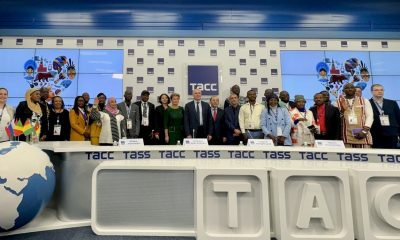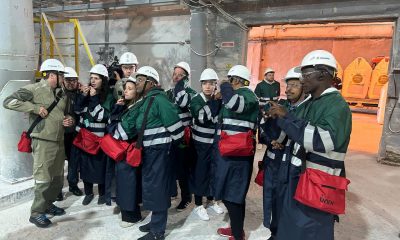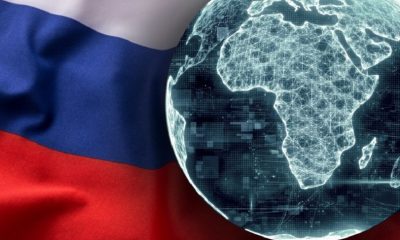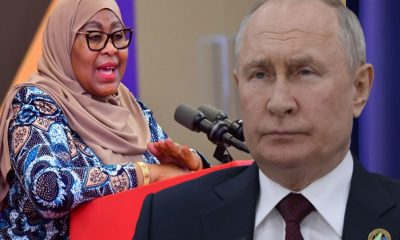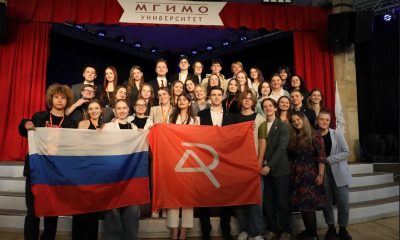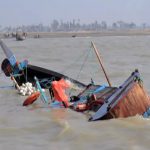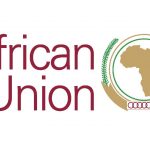World
Russia-African Relations in the Context of Geopolitical Changes
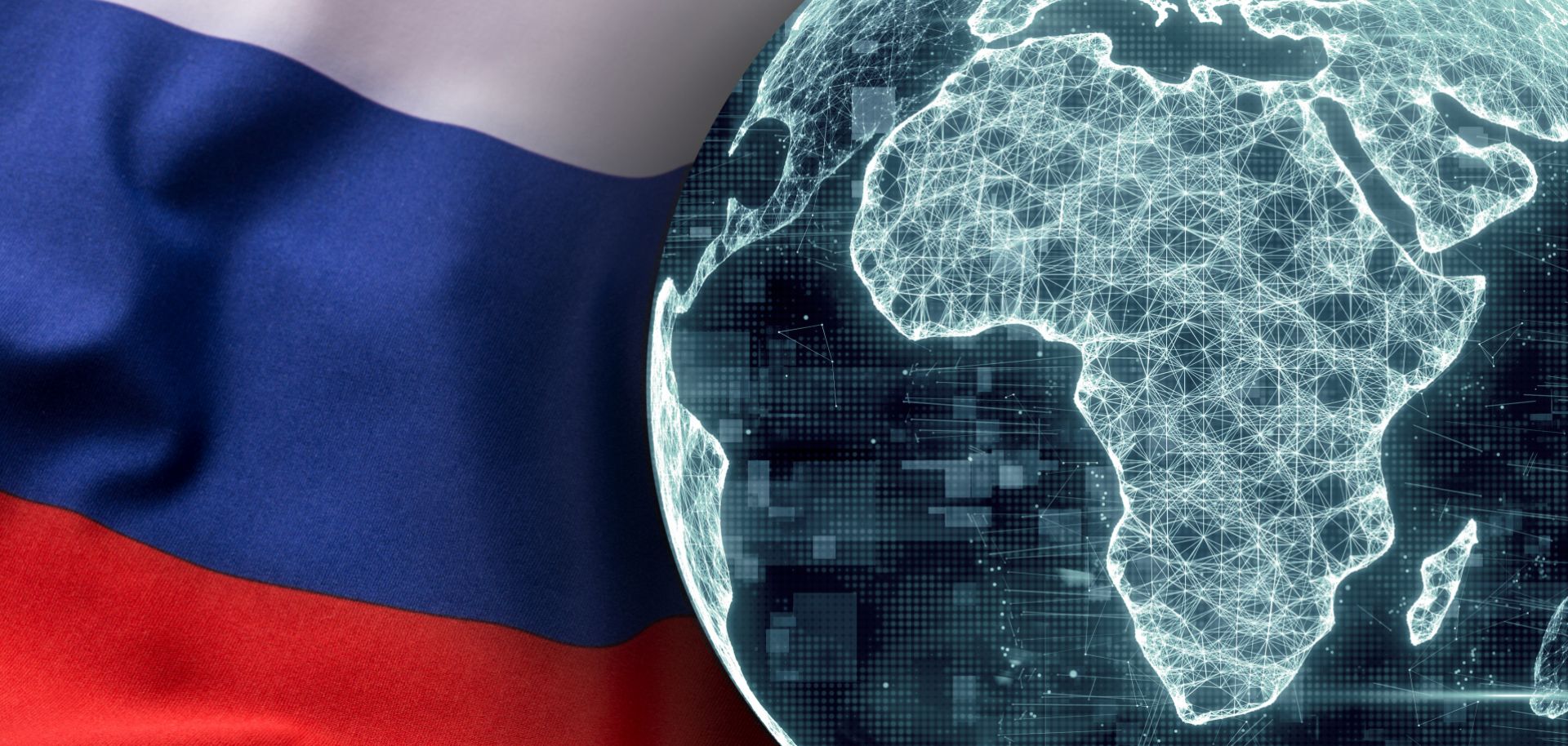
By Kester Kenn Klomegah
Russia needs to go beyond its traditional rhetoric of Soviet assistance rendered to Africa. It is important now to highlight concrete success stories and policy achievements, at least, during the past decade in Africa. The young generation and the middle class aged between 25 and 45 that make up the bulk of the 1.3 population hardly see the broad positive impact of Russia’s economic cooperation with Africa.
Russia plans to hold the second Russia-Africa summit later this year. Sergey Lavrov, Minister of Foreign Affairs of the Russian Federation, indicated in a mid-June message that “in these difficult and crucial times the strategic partnership with Africa has become a priority of Russia’s foreign policy. Russia highly appreciates the readiness of Africans to further step up economic cooperation.”
Lavrov said: “It is in the interests of our people to work together to preserve and expand mutually beneficial trade and investment ties under these new conditions. It is important to facilitate the mutual access of Russian and African economic operators to each other’s markets and encourage their participation in large-scale infrastructure projects. The signed agreements and the results will be consolidated at the forthcoming second Russia-Africa summit.”
The above statement arguably offers some implications especially discussing this question of relationship-building. Lavrov has aptly asserted that within the “emerging and sustainable polycentric architecture of the world order” relations with Africa are still a priority, but Russians always close their eyes to the fact that the country’s foreign policy in Africa has largely failed to pronounce itself, in practical terms, as evidenced by the countable forays into Africa by Russian officials.
The Soviet Union was quite extensively engaged with Africa, comparatively. Russians have only been criticizing other foreign players during the past two decades without showing any model of building relationships. Its foreign policy goals are directed simply at sustaining the passion for signing several MoUs and bilateral agreements with African countries.
During the past years, there have been several symbolic meetings of bilateral intergovernmental commissions both in Moscow and in Africa. The first historic summit discussed broadly the priorities and further identified opportunities for collaboration. It, however, requires understanding the tasks and the emerging challenges. The current functions should concretely focus on actionable strategies towards enhancing the effective implementation of existing bilateral agreements, taking practical collaborated actions leading to goal-driven results. Nevertheless, Lavrov hopes “the signed agreements and the results will be consolidated at the forthcoming second Russia-Africa summit.”
Still, Russia plays very little role in Africa’s infrastructure, agriculture and industry, and especially making efforts to leverage the African Continental Free Trade Area (AfCFTA). While, given its global status, it ought to be active in Africa as Western Europe, the European Union, America and China are, it is all but absent, playing a negligible role, according to Professor Gerrit Olivier at the Department of Political Sciences, University of Pretoria, and former South African Ambassador to the Russian Federation.
Researchers have been making tangible contributions to the development of African studies in Russia. This Moscow-based Africa Institute has a huge pack of research materials useful for designing an African agenda.
In an interview, Professor Vladimir Shubin at the Institute for African Studies, Russian Academy of Sciences reiterated that Russia is not doing enough to communicate to the broad sectors of the public, particularly in Africa, true information about its domestic and foreign policies as well as the accomplishments of Russia’s economy, science and technology to form a positive perception of Russia within the context of the current global changes of the 21st century.
As to Russia’s involvement, it has undoubtedly a vast experience in the development of projects in Africa accumulated during Soviet times, the building of power stations and dams and creating technical training institutes. What is lacking nowadays is its ability to provide large investments, according to Shubin, “but Russian expertise and technology can still be used while carrying out internationally-financed projects in Africa.”
As to the failures, perhaps, we have to point to the lack of deep knowledge of African conditions, especially at the initial stage of the involvement which sometimes resulted in suggesting (or agreeing to) unrealistic projects, But there are good prospects for reactivating diversified cooperation, he explained.
Chronological analysis shows that Russia’s politics toward Africa under President Boris Yeltsin (1991-2001) was described as a lost decade, both in internal and external affairs, including relations with Africa.
Historical documents further show that after the Soviet collapse, there were approximately 380 projects throughout Africa. In the early 1990s, Russia swiftly exited, closed several diplomatic offices and abandoned all these and hardly any sign of Soviet-era infrastructure projects there.
Policy statements have indicated strong optimism for raising relations. , however, at least during the past decade, official reports including sparkling speeches at high-level conferences, summits and meetings indicated projects are being implemented in Africa by such leading Russian businesses as Rosneft, Lukoil, Rosgeo, Gazprom, Alrosa, Vi Holding, GPB Global Resources and Renova.
Nevertheless, it is so common to reiterate that Russia has always been on Africa’s side in the fight against colonialism. The frequency of reminding again and again about Soviet assistance, that was offered more than 60 years ago, will not facilitate the expected beneficial trade and investment ties under these new conditions. The United Nations declared Africa fully independent in 1960, and the Organization of African Unity (OAU) was formed on 25 May 1963 in Addis Ababa, Ethiopia.
Afreximbank President and Chairman of the Board of Directors, Dr Benedict Okey Oramah, says Russian officials “keep reminding us about Soviet-era” but the emotional link has simply not been used in transforming relations.
Oramah said one of Russia’s major advantages was goodwill. He remarked that even young people in Africa knew how Russia helped African people fight for independence. “So an emotional link is there,” he told Inter-Tass News Agency.
The biggest thing that happened in Africa was the establishment of the African Continental Free Trade Area (AfCFTA). That is a huge game-changer, and steps have been made lately in the African countries for creating better conditions for business development and shaping an attractive investment climate.
“Sometimes, it is difficult to understand why the Russians are not taking advantage of it? We have the Chinese, we have the Americans, we have the Germans who are operating projects…That is a very, very promising area,” Oramah said in his interview last year.
Ahead of the Sochi summit 2019, Oramah presented a report to a particular business conference that ran from 18 to 22 June, the same year, and listed spheres for possible cooperation such as finances, energy, mining, railway infrastructure, digital technologies, cybersecurity, healthcare, education, food security in Africa.
That conference saw several agreements signed including between the African Export-Import Bank (Afreximbank) and Sinara-Transport Machines JSC (STM), Transmash Holding JSC, Russian Export Center JSC, Avelar Solar Technology LLC, Chelyabinsk Pipe Plant PJSC, Kolon World Investment, and Opaia SA and the Roscongress Foundation. As far back in 2017, the Russian Export Center became Afreximbank’s third-largest non-African shareholding financial organization shareholder and is expected to contribute to the acceleration of investment, trade, and economic relations between Russia and Africa.
It is interesting to note here that the Russian business community hardly pays attention to the significance of AfCFTA which provides a unique and valuable platform for businesses to access an integrated African market of over 1.3 billion people.
The growing middle class, among other factors, constitutes a huge market potential in Africa. The African continent currently has enormous potential as a market, and some experts say it is the last business frontier.
Many African countries are enacting economic reforms, demand is growing for high-quality, competitive products. Russian businesses are interested in this niche, but Russians are extremely slow. The snail-pace approach reflects their inability to determine financial instruments for supporting trade with and investment in Africa.
Accentuating the importance of multilateral cooperation between Russia and Africa, Advisor to the President of the Russian Federation, Anton Kobyakov, said: “The current situation in the world is such that we are witnesses to the formation of new centres of economic growth in Africa. Competition for African markets is growing accordingly. There is no doubt that Russia’s non-commodity exporters will benefit from cooperating with Africa on manufacturing, technologies, finances, trade, and investment.”
Kobyakov further pointed to modern Russia, which already has experience of successful cooperation with African countries under its belt, is ready to make an offer to the African continent that will secure mutually beneficial partnership and the joint realization of decades of painstaking work carried out by several generations of Soviet and Russian people.
With its impressive relations, Russia has not pledged publicly concrete funds toward implementing its policy objectives in Africa. Moreover, Russian officials have ignored the fact that Russia’s overall economic engagement is largely staggering, various business agreements signed are still not fulfilled, with many African countries.
Agreements and business negotiations resulted in 92 agreements, contracts and memoranda of understanding. Summit documents say a total of RUB 1.004 trillion (($12.5 billion) worth of agreements were signed at that highly-praised historic summit in October 2019.
Large Russian companies have been unsuccessful with their projects, negatively reflecting the real motives for bilateral economic cooperation. There are several examples such as Rosatom in South Africa, Norrick Nickel in Botswana, Ajaokuta Steel Plant in Nigeria, Mining projects in Uganda and Zimbabwe, and Lukoil in Cameroon, Nigeria and Sierra Leone. Currently, Russia is invisible in spheres providing infrastructures in Africa.
Undoubtedly, several Russian companies have largely underperformed in Africa, experts described was primarily due to multiple reasons. Most often, Russian investors strike important investment niches that still require long-term strategies and adequate country study. Grappling with reality, there are many investment challenges including official bureaucracy in Africa.
To ensure business safety and consequently take steps to realize the primary goals, it is necessary to attain some level of understanding of the priorities of the country, investment legislations, compliance with terms of agreement and a careful study of policy changes, particularly when there is a sudden change in government.
What is abundantly clear is how to stimulate African governments into exploring investment opportunities in Russia and also Russian investors in Africa within some framework of cooperation. In order to facilitate both Russian and African economic operators’ access to each other’s markets and encourage their participation in large-scale infrastructure projects must involve taking progressive practical steps toward resolving existing obstacles.
That said, preparations for the second Russia-Africa summit are currently underway. “The Russian side aims to continue preparing the second, as well as subsequent Russian-Africa summits and aims to make them as efficient as possible. The Russian Ministry of Foreign Affairs and other ministries are taking steps to build full and mutually beneficial cooperation between Russia and the African countries, including the formation of a reliable social and economic infrastructure, food and energy security on the continent,” said Oleg Ozerov, Ambassador-at-Large and Head of the Secretariat of the Russia-Africa Partnership Forum.
Worth saying here that African leaders are waiting to cut white ribbons marking the successful completion of Russian-managed something. It is time to shift from rhetoric and move on towards implementing the package of bilateral agreements, especially those involving infrastructure investments, determining financing concrete projects and delivering on decade-old pledges to the people of Africa.
While Russian and African leaders have common positions on the global platform, there is also the need to recognize and appreciate the welfare of the 1.3 billion population, the majority impoverished, in Africa. Significant to suggest that with new horizons of the polycentric world order emerging and steadily unfolding, active engagement of the African youth, civil society leaders and active changemakers in the middle-class in policy efforts becomes necessary.
With the youth’s education, some experts are still critical. Gordey Yastrebov, a Postdoctoral Researcher and Lecturer at the Institute for Sociology and Social Psychology at the University of Cologne (Germany), argues in an email interview discussion that “education can be a tool for geopolitical influence in general, and for changing perceptions specifically, and Russia (just like any other country) could use it for that same purpose. However, Russia isn’t doing anything substantial on this front, at least there is no consistent effort with obvious outcomes that would make me think so. There are no large-scale investment programs in education focusing on this.”
He explains that Russian education can become appealing these days, but given that Russia can no longer boast any significant scientific and technological achievements. Western educational and scientific paradigm embraces cooperation and critical independent thinking, whereas this is not the case with the Russian paradigm, which is becoming more isolationist and authoritarian. Obviously, by now, Africa should look up to more successful examples elsewhere, perhaps in the United States and Europe.
As official Russia’s Ministry of Foreign Affairs website indicated – it is evident that the significant potential of the economic cooperation is far from being exhausted, much remains to be done in creating the conditions necessary for interaction between Russia and Africa. At a meeting of the Ministry’s Collegium, Lavrov unreservedly suggested taking a chapter on the approach and methods adopted by China in Africa, and that was back in 2019.
Now at the crossroad, it could be meandering and longer than expected to make the mark. Russia’s return journey could take another generation to reach its destination, Africa. With the current changing geopolitical world, Russia has been stripped of as a member of many international organizations. As a direct result of Russia’s “special military operation” aims at “demilitarization and denazification” since late February, Russia has come under a raft of sanctions imposed by the United States and Canada, the European Union, Japan, Australia, New Zealand and the host of other countries.
World
Russia Expands Military-Technical Cooperation With African Partners

By Kestér Kenn Klomegâh
Despite geopolitical complexities, tensions and pressure, Russia’s military arms and weaponry sales earned approximately $15 billion at the closure of 2025, according to Kremlin report. At the regular session, chaired by Russian President Vladimir Putin on Jan. 30, the Commission on Military and Technical Cooperation with Foreign Countries analyzed the results of its work for 2025, and defined plans for the future.
It was noted that the system of military-technical cooperation continued to operate in difficult conditions, and with increased pressure from the Western countries to block business relations with Russia. The meeting, however, admitted that export contracts have generally performed sustainably. Russian military products were exported to more than 30 countries last year, and the amount of foreign exchange exceeded $15 billion.
Such results provide an additional opportunity to direct funds to the modernization of OPC enterprises, to the expansion of their production capacities, and to advanced research. It is also important that at these enterprises a significant volume of products is civilian products.
The Russian system of military-technical cooperation has not only demonstrated effectiveness and high resilience, but has created fundamental structures, which allow to significantly expand the “geography” of supplies of products of military purpose and, thus strengthen the position of Russia’s leader and employer advanced weapons systems – proven, tested in real combat conditions.
Thanks to the employees of the Federal Service for Military Technical Cooperation and Rosoboronexport, the staff of OPC enterprises for their good faith. Within the framework of the new federal project “Development of military-technical cooperation of Russia with foreign countries” for the period 2026-2028, additional measures of support are introduced. Further effective use of existing financial and other support mechanisms and instruments is extremely important because the volumes of military exports in accordance with the 2026 plan.
Special attention would be paid to the expansion of military-technological cooperation and partnerships, with 14 states already implementing or in development more than 340 such projects.
Future plans will allow to improve the characteristics of existing weapons and equipment and to develop new promising models, including those in demand on global markets, among other issues – the development of strategic areas of military-technical cooperation, and above all, with partners on the CIS and the CSTO. This is one of the priority tasks to strengthen both bilateral and multilateral relations, ensuring stability and security in Eurasia.
From January 2026, Russia chairs the CSTO, and this requires working systematically with partners, including comprehensive approaches to expanding military-technical relations. New prospects open up for deepening military-technical cooperation and with countries in other regions, including with states on the African continent. Russia has been historically strong and trusting relationships with African countries. In different years even the USSR, and then Russia supplied African countries with a significant amount of weapons and military equipment, trained specialists on their production, operation, repair, as well as military personnel.
Today, despite pressure from the West, African partners express readiness to expand relations with Russia in the military and military-technical fields. It is not only about increasing supplies of Russian military exports, but also about the purchase of other weapons, other materials and products. Russia has undertaken comprehensive maintenance of previously delivered equipment, organization of licensed production of Russian military products and some other important issues. In general, African countries are sufficient for consideration today.
World
Trump Picks Kevin Warsh to Succeed Jerome Powell as Federal Reserve Chair
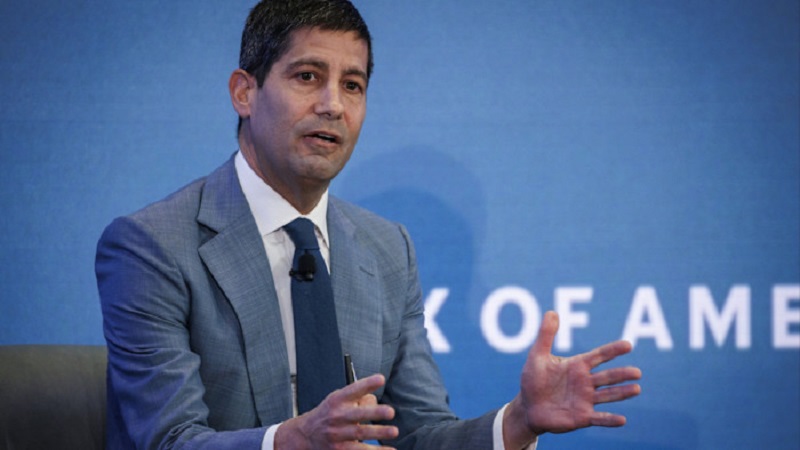
By Adedapo Adesanya
President Donald Trump has named Mr Kevin Warsh as the successor to Mr Jerome Powell as the Federal Reserve chair, ending a prolonged odyssey that has seen unprecedented turmoil around the central bank.
The decision culminates a process that officially began last summer but started much earlier than that, with President Trump launching a criticism against the Powell-led US central bank almost since he took the job in 2018.
“I have known Kevin for a long period of time, and have no doubt that he will go down as one of the GREAT Fed Chairmen, maybe the best,” Mr Trump said in a Truth Social post announcing the selection.
US analysts noted that the 55-year old appear not to ripple market because of his previous experience at the apex bank as Governor, with others saying he wouldn’t always do the bidding of the American president.
If approved by the US Senate, Mr Warsh will take over the position in May, when Mr Powell’s term expires.
Despite having argued for reductions recently, “Warsh has a long hawkish history that markets have not forgotten,” one analyst told Bloomberg.
President Trump has castigated Mr Powell for not lowering interest rates more quickly. His administration also launched a criminal investigation of Powell and the Federal Reserve earlier this month, which led Mr Powell to issue an extraordinary rebuke of President Trump’s efforts to politicize the independent central bank.
World
BRICS Agenda, United States Global Dominance and Africa’s Development Priorities
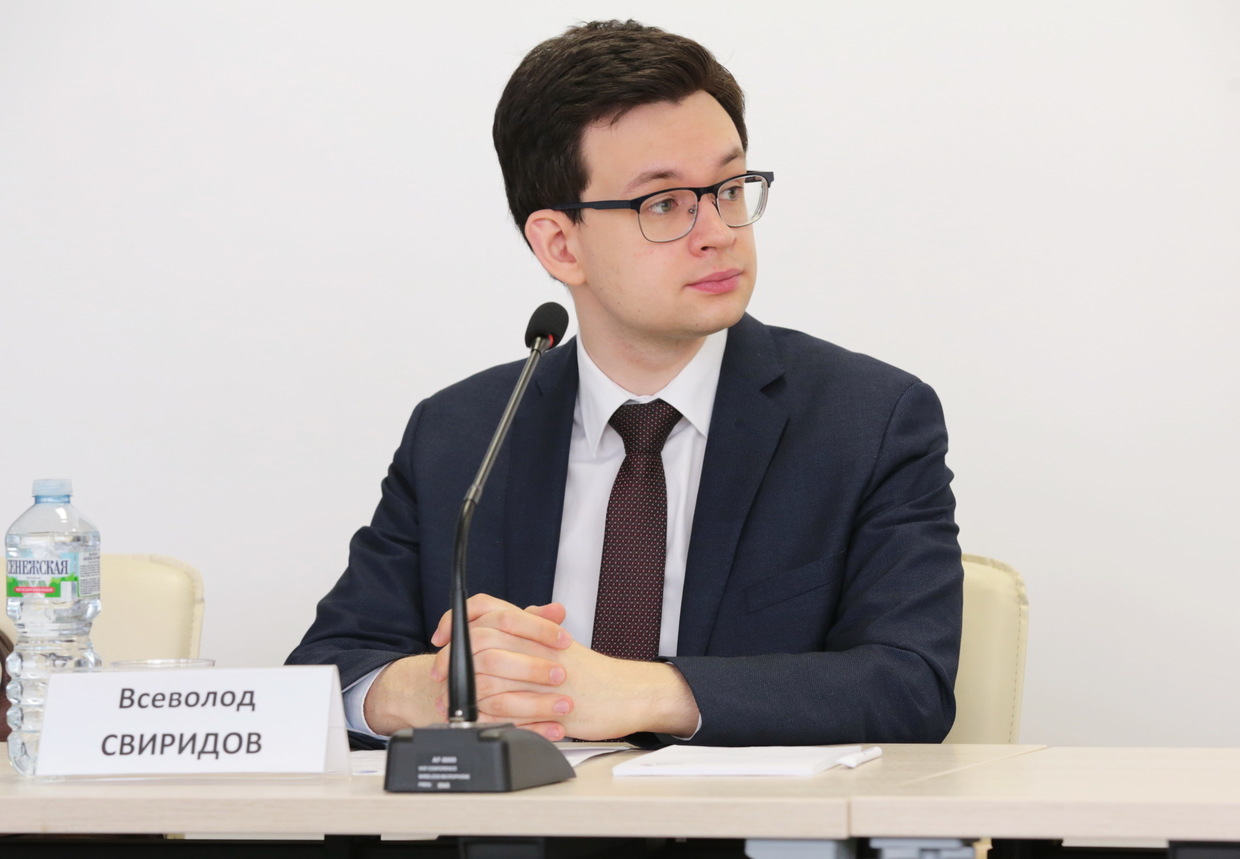
By Kestér Kenn Klomegâh
Donald Trump has been leading the United States as its president since January 2025. Washington’s priority is to Make America Great Again (MAGA). Trump’s tariffs have rippled many economies from Latin America through Asian region to the continent of Africa. Trump’s Davos speech has explicitly revealed building a ‘new world order’ based on dominance rather than trust. He has also initiated whirlwind steps to annex Greenland, while further created the Board of Peace, aimed at helping end the two-year war between Israel and Hamas in Gaza and to oversee reconstruction. Trump is handling the three-year old Russia-Ukraine crisis, and other deep-seated religious and ethnic conflicts in Africa.
These emerging trends, at least in a considerable short term, are influencing BRICS which has increased its geopolitical importance, and focusing on uniting the countries in the Global East and Global South. From historical records, BRICS, described as non-western organization, and is loosing its coherence primarily due to differences in geopolitical interests and multinational alignments, and of course, a number of members face threats from the United States while there are variations of approach to the emerging worldwide perceptions.
In this conversation, deputy director of the Center for African Studies at Moscow’s National Research University High School of Economics (HSE), Vsevolod Sviridov, expresses his opinions focusing on BRICS agenda under India’s presidency, South Africa’s G20 chairmanship in 2024, and genegrally putting Africa’s development priorities within the context of emerging trends. Here are the interview excerpts:
What is the likely impact of Washington’s geopolitics and its foreign policy on BRICS?
From my perspective, the current Venezuela-U.S. confrontation, especially Washington’s tightened leverage over Venezuelan oil revenue flows and the knock-on effects for Chinese interests, will be read inside BRICS as a reminder that sovereign resources can still be constrained by financial chokepoints and sanctions politics. This does not automatically translate into BRICS taking Venezuela’s side, but it does strengthen the bloc’s long-running argument for more resilient South-South trade settlement, diversified energy chains, and financing instruments that reduce exposure to coercive measures, because many African and other developing economies face similar vulnerabilities around commodities, shipping, insurance, and correspondent banking. At the same time, BRICS’ expansion makes consensus harder: several members maintain significant ties with the U.S., so the most likely impact is a technocratic push rather than a loud political campaign.
And highlighting, specifically, the position of BRICS members (South Africa, Ethiopia and Egypt, as well as its partnering African States (Nigeria and Uganda)?
Venezuela crisis urges African members to demand that BRICS deliver usable financial and trade tools. For South Africa, Ethiopia, and Egypt, the Venezuela case is more about the precedent: how quickly external pressure can reshape a country’s fiscal room, debt dynamics, and even investor perceptions when energy revenues and sanctions compliance collide. South Africa will likely argue that BRICS should prioritize investment, industrialization, and trade facilitation. Ethiopia and Egypt, both debt-sensitive and searching for FDI, will be especially attentive to anything that helps de-risk financing, while avoiding steps that could trigger secondary-sanctions anxieties or scare off diversified investors.
Would the latest geopolitical developments ultimately shape the agenda for BRICS 2026 under India’s presidency?
India’s 2026 chairmanship is already framed around “Resilience, Innovation, Cooperation and Sustainability,” and Venezuela’s shock (paired with broader sanction/market-volatility lessons) will likely sharpen the resilience part. From an African perspective, that is an opportunity: South Africa, Ethiopia, and Egypt can press India to translate the theme into deliverables that matter on the ground: food and fertilizer stability, affordable energy access, infrastructure funding. India, in turn, has incentives to keep BRICS focused on economic problem-solving rather than becoming hostage to any single flashpoint. So the Venezuela episode may function as a cautionary case study that accelerates practical cooperation where African members have the most to gain. And I would add: the BRICS agenda will become increasingly Africa-centered simply because Africa’s weight globally is rising, and recent summit discussions have repeatedly highlighted African participation as a core Global South vector. South Africa’s G20 chairmanship last year explicitly framed around putting Africa’s development priorities high on the agenda, further proves this point.
-

 Feature/OPED6 years ago
Feature/OPED6 years agoDavos was Different this year
-
Travel/Tourism9 years ago
Lagos Seals Western Lodge Hotel In Ikorodu
-

 Showbiz3 years ago
Showbiz3 years agoEstranged Lover Releases Videos of Empress Njamah Bathing
-

 Banking8 years ago
Banking8 years agoSort Codes of GTBank Branches in Nigeria
-

 Economy3 years ago
Economy3 years agoSubsidy Removal: CNG at N130 Per Litre Cheaper Than Petrol—IPMAN
-

 Banking3 years ago
Banking3 years agoSort Codes of UBA Branches in Nigeria
-

 Banking3 years ago
Banking3 years agoFirst Bank Announces Planned Downtime
-

 Sports3 years ago
Sports3 years agoHighest Paid Nigerian Footballer – How Much Do Nigerian Footballers Earn




